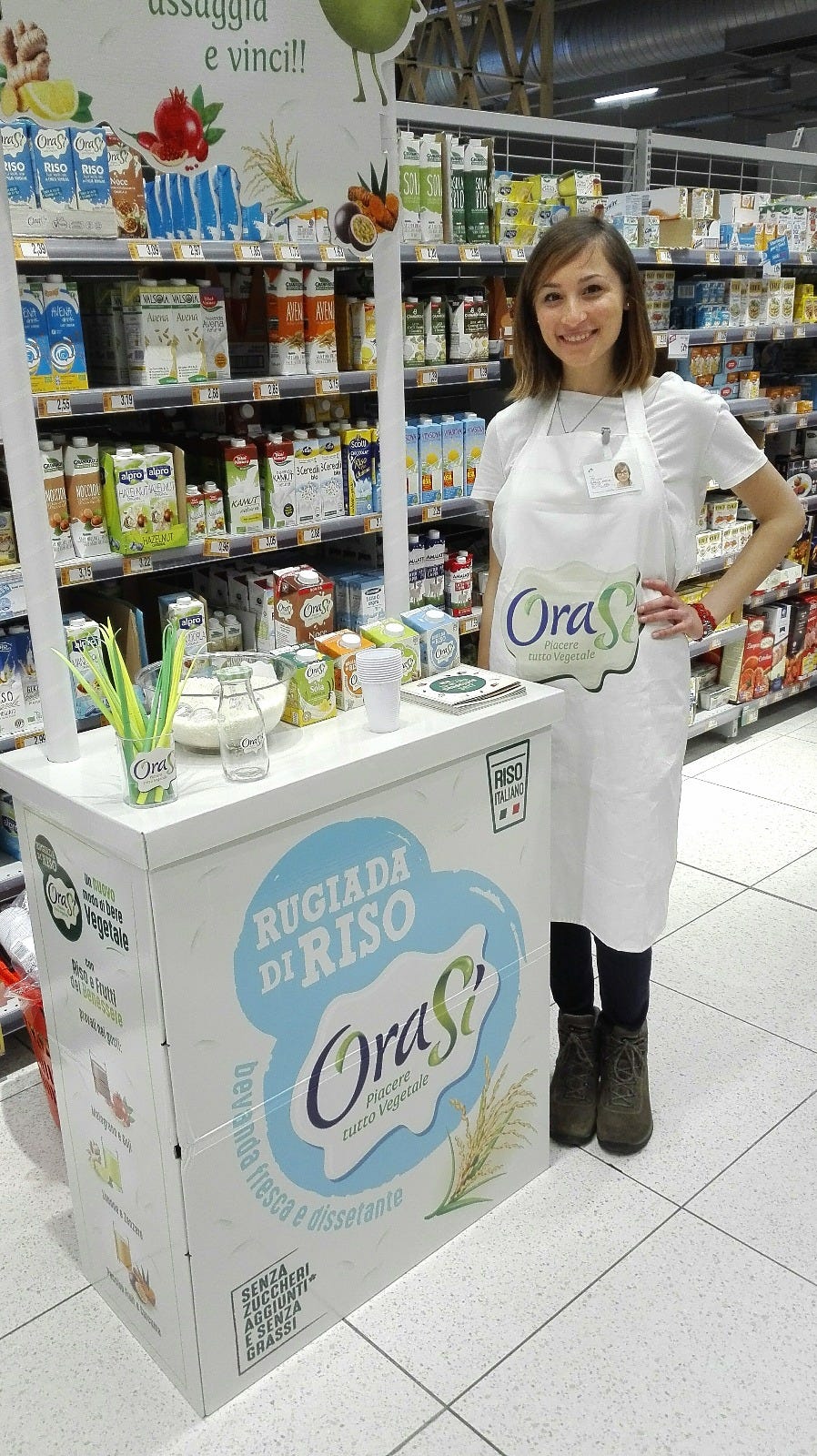[article voiceover: there are quite a few mistakes, but it’s the very first time I record myself while reading out loud and unfortunately I don’t have another 7 hours to dedicate to it.]
Risolvi l’ebola in Africa facendo la lavatrice – leggi questo articolo in italiano
Back when I was 22 and I still lived in Milan, I took on occasional weekend jobs at big supermarkets, promoting certain brands to clients for a day or two. The experience gave me confidence in talking crap to strangers -or should I rather say that it took away any shred of concern for decency that I may have previously had? Every experience in life is a give and take, I guess. It also led to many surreal encounters, such as the one with the middle-aged married couple who insisted on asking me where was I from. "No! Not Sicily. I mean, before you came to Italy!" I must have looked so puzzled because the wife exclaimed:"Come on honey, let's go. Can't you see she doesn't even understand Italian properly?" All in all, it was a bit of a sensory overload in a perennial, uber intense but strangely cold daylight setting with absolutely no shadows.
One of the brands I promoted claimed that for one laundry liquid purchased they would have donated a vaccine to a kid in Africa. In that same period I jotted down another advertisement I had seen around claiming a donation of 1 litre of clean water for a kid in Africa for each purchased box of I don't know what. I remember thinking: "Wow, with these numbers we surely need to consume like maniacs in the West so that kids in Africa can have the bare minimum". We are basically talking about a donation of a few cents per product, which is kind of pathetic, but the symbolic images of vaccine and clean water spoke to people’s hearts, I guess. That's what marketing is for, after all -to say the same things but with different, pleasant words.
A few years later, our Italian queen-influencer Chiara Ferragni appropriated the give-to-us-so-that-we-give-to-them communication strategy and applied it to her branded Easter eggs, Pandoro cakes, plush dolls and even questionable cookie-patterned tracksuits. It turned out there was no charitable donations done by her. People were furious– they were okay overpaying for her pink lousy pandoro, but only in order to do charity.
It’s not just Chiara or laundry liquid brands, though. The idea has been repackaged countless times by casually dressed white men with expensive business degrees; the guys who want to ‘make a difference in the world’, but also to their bank account –of course, what’s wrong with that? It seems like paying workers and suppliers a fair wage and paying a normal percentage of taxes in your country is not enough for them to make a difference. Take for example clothing brand Patagonia: it cannot insure its workers sewing the actual clothes are unionised or paid decent wages, it cannot avoid overproduction that leads to overconsumption of resources and considerable waste, and it certainly cannot pay taxes –otherwise how else would it be able to donate all its record-profits to a charitable foundation owned by the CEO and his family, so that they can make a difference in the world?
Or take beauty and toiletries brand Lush: it cannot avoid producing an ever-increasing amount and range of products, most of which come in plastic, and it overuses glitter that according to studies is still damaging marine environments even when ‘biodegradable’1. Lush has a Charity Pot that equals the amount of sales of three specific products out of hundreds on its website, minus taxes. The Charity pot can grant up to £10,000 funding to small charities doing "projects that create long-term systemic change, addressing the root cause of the problem". Lush has donated a total of £80 millions to charity since 2007, which is 7.5% of its annual turnover of over £800 millions, a turnover that keeps increasing at a steady rate (up to 10% per year according to its website). When thinking about "the root cause of the problem", it’s hard not to see how overproducing an ever-expanding range of different toiletries filled with an inane amount of glitter and artificial colouring, packaged in tons of (recycled, sure) black plastic containers could also be a bit of a root cause of the problem as well, whatever "the problem" is.

Don’t get me wrong, there is nothing wrong with businesses seeking profit. I love commerce and business, I have a business myself. It’s just that a lot of this seems like unnecessary complexity, and I believe in via negativa2. A company is, first and foremost, in the business of making a profit, not “making a difference”. No profit, no business; otherwise it’s your passion project or a pyramid scheme you got sucked in by your cousin’s classmate from high school. As for the "making the difference" bit, there is a lot of difference to be made in a few simple steps:
– paying people a fair wage for their work or price for their goods,
–prioritising investments in research, people and service improvement before giving payouts to stakeholders and management,
–offering a good and honest service to clients without over-consuming resources, over-producing useless things and over-working,
–simply paying the taxes that are owed to the country the business is based in, rather than paying a team of genius accountants to pay a few percentiles instead.
Anything that is left after existing as a decent, profitable business can make even more difference by doing charity, but not the other way round. Otherwise, it’s like making starting to make crème brûlée at 9 pm when nobody has had their dinner yet.
As consumers, we completely internalised the ‘Vote with your dollar’ fairytale. The main thing about vote was that we only have one each, therefore we are all the same. Instead, when we vote with our dollars we need tons of them in order to be heard –please insert coin to play. Perhaps we need to accept going back to be heard with actual voting and protesting instead.
The capitalist concept of win-win3 allowing us to consume all the nice and futile things our little heart desires while sorting out the world’s problems with charitable efforts is completely nonsensical. By its Latin etymology, charity means love, which is mostly a conscious act of sacrifice and deprivation of the self in favour of someone else. The idea that you could incidentally do charity while minding your own business and getting what you want is also a lazy one. I doubt Jesus would have recommended loving thy neighbour by buying silly-looking socks4 (but I am pretty sure he would have been thrilled by the pink icing sugar of Chiara’s pandoro though).
“Via negativa (acting by removing) is more powerful and less error-prone than via positiva (acting by addition)”. Nassim Nicholas Taleb, Skin in the Game: Hidden Asymmetries in Daily Life (2018)
Anand Giridharadas, Winner Takes All (2018)
Bombas socks. Yes, they do look silly indeed, I am sorry.









